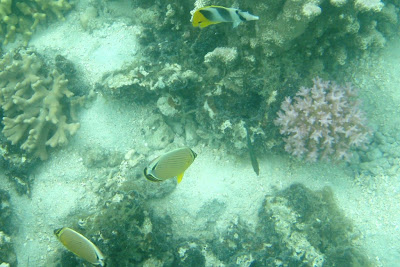 (Underwater Baker Test, Bikini, 1946)
(Underwater Baker Test, Bikini, 1946)Most lovers of women would today agree that the bikini is a fantastic invention. But it wasn’t always that way. When Frenchman Louis Reard first created the scanty two-piece bathing suit in 1946, no French models would wear it on the runway. It was a prudish period in both Europe and North America. In deciding what to name it, Reard knew that he needed something big. He needed to overcome the scandal by associating the new bathing suit with something grand. There happened to be a story making headlines at the same time about a place called Bikini…
Operation Crossroads
Thousands of miles away, in the lagoon of a remote atoll, half of the entire world supply of film was being used to record the first two of sixty-seven nuclear tests. A war of words was raging between the U.S. Army and Navy. WW2 had just ended and the Army was claiming that the Navy was now redundant. Why spend billions of dollars on a huge fleet of ships when a few Army bombers could deliver a payload to make any world leader quake in his boots? The admiral in charge of the navy, afraid that his boats would be stuffed with mothballs, set out to prove that nuclear detonations would have a more limited effect against ships at sea and therefore the U.S. needed its ships to fight other navies.
So it was that Operation Crossroads was born, a project to study the effects of nuclear explosions on land and underwater. The site chosen was as remote and sparsely populated at it gets, the Bikini and Enewetak atolls of the Marshall Islands.
Over the course of 12 years, 67 nukes were detonated.
For the Good of Mankind
167 people lived on Bikini atoll in 1946, so the military needed to convince them to relocate, temporarily, so that the military could conduct scientific tests “for the good of mankind and to end all world wars”. It was done with cunning, since the meeting between Commodore Wyatt and the Bikinians was held on Sunday afternoon, shortly after Church. The Commodore perversely appealed to their morality. It worked. King Juda of Bikini and his people agreed to be relocated, temporarily, so that the Americans could conduct their tests. Shortly thereafter, the people of Enewetak also agreed to be relocated.
Bravo
March 1, 1954, a hydrogen bomb code-named Bravo, was detonated on the surface of the reef in the northwestern corner of Bikini Atoll. It was the 12th test conducted in the Marshall Islands. Bravo exploded with 1,000 times the force of the bombs dropped on Hiroshima and Nagasaki.
However, the winds were moving eastward, placing Rongelap atoll, about 125 miles away, within the fallout zone.
“The Rongelapese, not understanding what was happening, watched as two suns rose that morning, observed with amazement as the radioactive dust soon formed a layer on their island two inches deep, turning the drinking water a brackish yellow. Children played in the fallout; their mothers watched in horror as night came and they began to show the physical signs of exposure. The people experienced severe vomiting and diarrhea, their hair began to fall out, the island fell into a state of terrified panic. The people had received no explanations or warnings whatsoever from the United States government.”
-Jack Niedenthal, “For the Good of Mankind”
The demon of Rongerik
Back to the people of Bikini: Relocated to Rongerik atoll, the Bikinians faced extreme hardships, particularly starvation. It was said that a demon had died there and its body had been dumped into the ocean. Indeed, even though the same species of fish inhabit Rongerik as Bikini, they are largely poisonous due to what they eat. The people of Bikini attributed the poison to the demon’s decomposition, which had polluted the waters of the atoll. Coconuts were less plentiful because Rongerik is much smaller than Bikini, challenging the Bikinians to sustain themselves.
In Part II, a few blog entries in the future, I will relate the second relocation to Killi island and the trials that modern-day Bikinians face as refugees in their own country.
Links:
www.bikiniatoll.com
http://www.atomicforum.org/







































